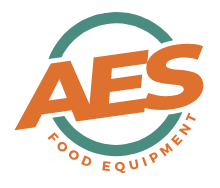The meat processing industry is undergoing rapid changes driven by technology, sustainability, and changing consumer demands. Here are some of the key trends that will shape the future of commercial meat processing in the coming years.
Automation and Robotics
Automation and robotics are transforming meat processing operations. Tasks like deboning, cutting, slicing, and packaging are increasingly being handled by machines rather than human workers. Robotic arms can precisely and efficiently cut and portion meat products 24/7 without fatigue.
Automation reduces labour costs and boosts productivity and efficiency. For example, modular abattoir units are one of the future trends in meat processing that can significantly speed up the workflow for smaller slaughter operations by automating processes.
These prefabricated structures are fully equipped, movable abattoir facilities enclosed within shipping containers. Modular units come with built-in stunning, bleeding, and dressing equipment designed to process livestock like cattle, pigs, and sheep. Compact, customisable units allow swift setup and relocation as needed.
Modular abattoirs adhere to sanitation and hygiene regulations while streamlining workflows. Their mobility also provides slaughtering access to remote locations. With quick implementation and cost-effective management, modular abattoir units offer immense value for small meat processors requiring nimble and regulatory-compliant slaughtering facilities. Their versatility and portability make modular abattoirs an appealing investment for optimising small-scale operations.
Alternative Proteins
Alternative proteins like plant-based meat substitutes and lab-grown cultured meats are rising in popularity. Driven by concerns over health, environment and animal welfare, more consumers are exploring meat alternatives. While still a niche, alternative proteins are expected to grab a sizable share of the protein market. To stay competitive, commercial meat processors may diversify into plant-based and lab-grown offerings alongside traditional meat products.
Sustainability
Sustainability is a growing priority. Commercial meat production equipment has a significant carbon footprint. Large processors are taking steps to reduce their environmental impact through renewable energy, waste reduction, recycling, and sustainable sourcing.
Tracking carbon emissions, water usage and waste across supply chains will be key. Packaging is shifting toward recyclables and biodegradables rather than plastics. Sustainability measures will be a competitive advantage for processors in the UK market where consumers are environmentally-conscious.
Animal Welfare
Animal welfare is a major concern around commercial meat production. Consumer demand for humanely raised meat is increasing. Large meat processors are enacting animal welfare programmes that establish clear standards and policies around the ethical treatment of animals. Tracking animal life history and sources will enable transparency around welfare claims on labels. Independent audits help verify welfare standards. Meat certification programmes like Red Tractor Assurance will grow in importance. Prioritising animal welfare can help processors meet consumer expectations.
Food Safety Technology
Ensuring food safety while maintaining quality will remain paramount. Industrial utensil washers are an important piece of butcher and meat processing equipment that helps ensure hygiene is a priority at all times, while speeding up workflows. Smart packaging contains sensors that track freshness. Predictive analytics systems use data to forecast contamination risks. Meat processors will adopt more advanced technologies like these to further guarantee product safety and extend shelf-life. Food safety innovations will strengthen consumer trust and reduce waste.
The commercial meat processing sector is undergoing major changes. Companies that embrace these trends will be best positioned for long-term growth.
Contact us today to see how we can help your business become more efficient and productive with top-quality commercial meat processing equipment.
